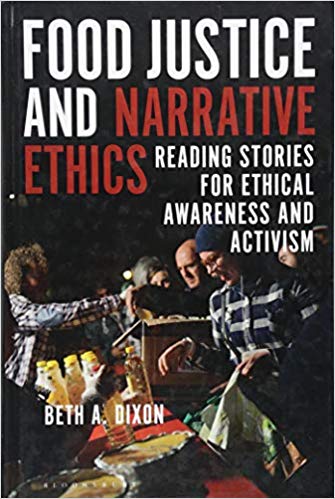From Aristotle to the Coalition of Immokalee Workers: Ethical Competence via Narrative Ethics Grows Food Justice
DOI:
https://doi.org/10.5304/jafscd.2019.091.006
Keywords:
Review, Farm Labor, Food Justice, Story-tellingAbstract
First paragraphs:
When conservationist Aldo Leopold wrote in the late 1940s about how one of the “penalties of an ecological education” includes “living alone in a world of wounds” (Leopold, Schwartz, & Leopold, 1968, p. 197), he could have very well been foreseeing the challenges confronting food systems advocates and food justice activists today.
Such advocates and activists become students of a probing moral education as they cultivate the targets of food justice in order to resolve myriad food injustices. State University of New York (SUNY) College at Plattsburgh philosophy professor Beth Dixon has written for years about how moral philosophy can greatly inform food justice theories and practices alike, including in her 2015 JAFSCD article, “Rewriting the Call to Charity: From Food Shelf Volunteer to Food Justice Advocate” (Dixon, 2015). Dixon’s latest work, Food Justice and Narrative Ethics: Reading Stories for Ethical Awareness and Activism, guides the ethical novice (i.e., practically every food systems worker, food systems advocate, and food justice activist) on “learning to see what is unjust in a particular situation” via documentary films, ethnographies, and other food justice narrative-driven media. In turn, Dixon informs us about how we can “accurately identify what policies, laws, and structural conditions should change in order to discharge our responsibility for achieving social justice” (p. 3). . . .
Metrics

Downloads
Published
How to Cite
License
Copyright (c) 2019 The Author

This work is licensed under a Creative Commons Attribution 4.0 International License.
The copyright to all content published in JAFSCD belongs to the author(s). It is licensed as CC BY 4.0. This license determines how you may reprint, copy, distribute, or otherwise share JAFSCD content.











